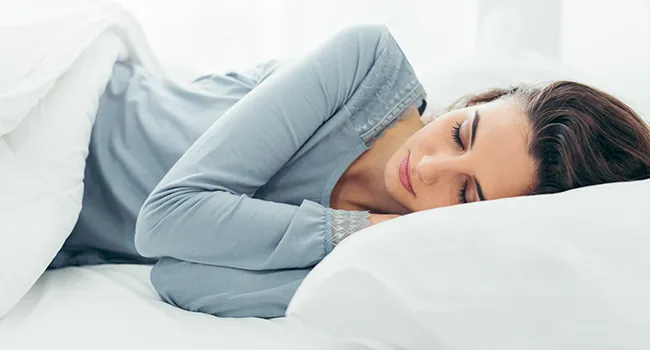Yes, you heard it right. Sleep and vision are connected.
We all know that sleep is essential for the healthy functioning of a body and helps in relaxing the mind but did you know that it affects your vision too?
After a long day, just like our body, our eyes also need to replenish and need 6-8 hours of sleep every day. A prolonged lack of sleep can cause many vision problems and can compromise your eye health.
Know the sleep deprivation symptoms!
Some common symptoms of sleep deprivation compromising your eye health are:
- Eye Strain
- Eye Spasms
- Blurred Vision
- Double Vision
- Low Vision
- Dry Eyes
- Light Sensitivity
- Eye Infections
The severity of the sleep deprivation symptoms can eventually lead to more severe eye problems and diseases.
Dry Eyes:
Our eyes constantly produce tears. These tears protect our eyes from infections, keep our eyes hydrated and support the normal functioning of the eye. Lack of sleep prevents fluid circulation and causes dry eyes. Some of the common dry eyes symptoms include eye irritation, blurry vision, eye redness and light sensitivity. If not treated in time, dry eyes can lead to poor vision, damaging the surface of your eye and lead to eye infections.
Glaucoma:
It is a condition when your optic nerve gets damaged, causing vision loss. Shorter sleep duration, prolonged sleep latency, lower sleep efficiency and poorer sleep quality create strain/pressure on the eyes, which is one of the main causes of Glaucoma. Regular eye checkup can help in diagnosing it before it’s too late.
Eye Floaters:
Eye floaters are a result of eye fatigue. A prolonged lack of sleep puts stress on your eyes which is one of the initial symptoms and can lead to eye floaters. Hence, it’s important to relax your eyes and take enough rest & sleep in order to heal.
Eye Twitching:
Eye spasm is a very common symptom of sleep deprivation and is very uncomfortable to deal with. Without proper sleep, the eye muscles cannot relax and put strain while focusing, leading to eye spasms. If the eye twitches very often, it can lead to severe conditions like blepharospasm, blepharitis (inflamed eyelids), dry eyes, etc.
Anterior Ischemic Optic Neuropathy (AION):
AION is a condition with the sudden loss of vision.Various factors can put a person at risk of developing AION, and one of them is linked with sleep loss. With lack of sleep, there is always a risk of inflammation in eye vessels, leading to severe conditions like AION.
Sleep and vision are very much related, and it is not something that can be ignored. Make sure you keep a regular check on the symptoms as they occur and try to get enough sleep that your body needs.
Here are 6 tips that you can use to achieve sound sleep:
- Fix a consistent time to go to bed and try to adhere to the same every day
- Don’t watch TV or use a mobile phone before half an hour of your sleeping time
- Exercise every day for at least 2-3 hrs as it helps with better sleep
- Avoid consuming too much caffeine & alcohol
- Set up your bedroom environment to avoid any sleep interruptions like noise, light, temperature, etc.
- Avoid eating heavy dinner as digestion consumes a lot of energy which can make it harder to sleep.
How Centre for Sight can help?
Regular eye checkups are critical. Sometimes people ignore certain symptoms that can be easily detected during an eye checkup and can be taken care of due time before causing much harm to the eye. Centre for Sight offers eye care across India with experienced eye specialists and is equipped with technologically advanced eye care facilities for proper diagnosis & treatment.
Article: Did you know Sleep and Vision are directly related!
Author: CFS Editorial Team | Jan 19 2021 | UPDATED 05:20 IST
*The views expressed here are solely those of the author in his private capacity and do not in any way represent the views of Centre for Sight.





